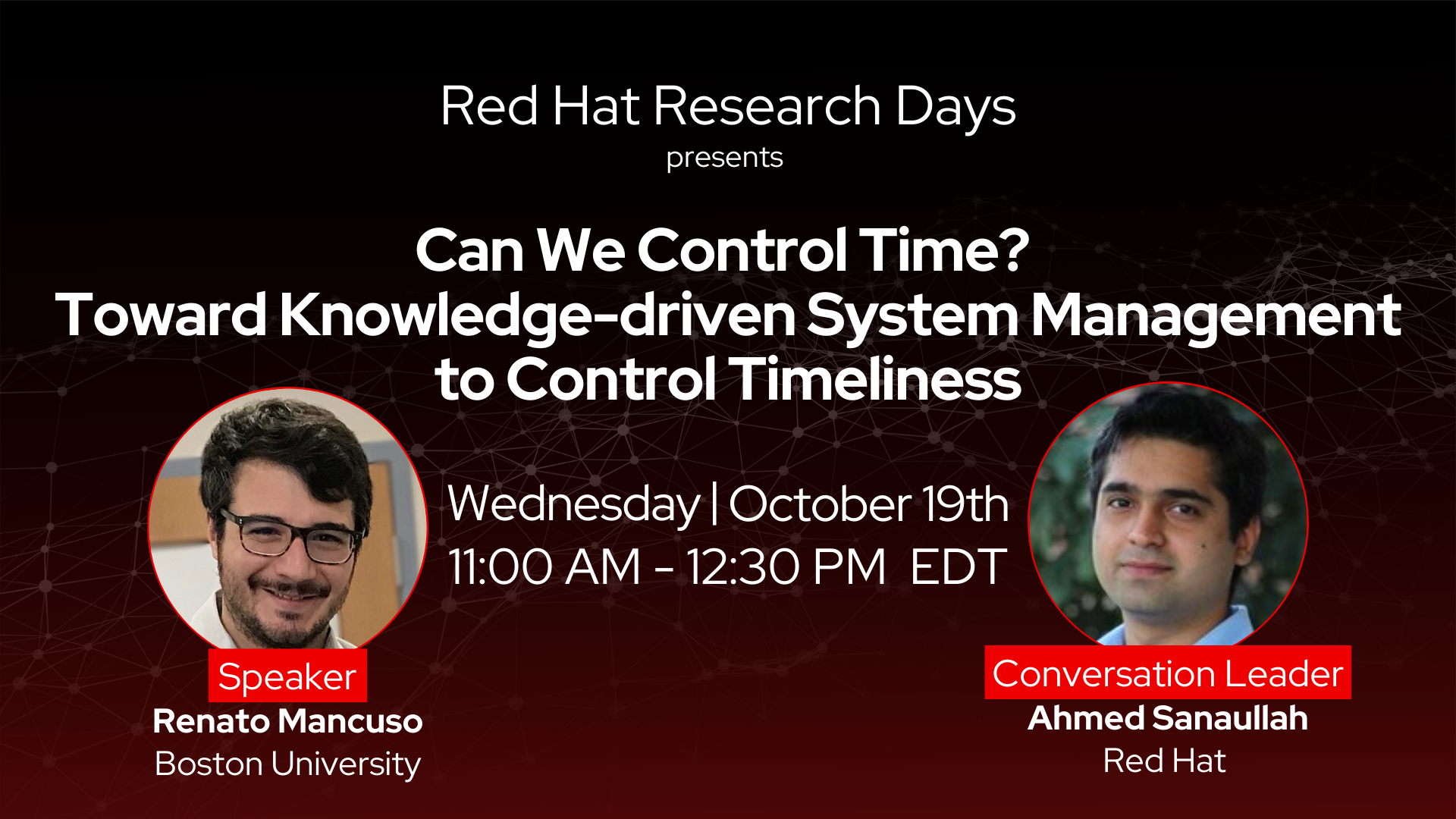
Can We Control Time? Toward Knowledge-Driven System Management to Control Timeliness
Can we control time? During this talk Renato Mancuso, Assistant Professor of Computer Science, Boston University, explored this question in the context of his team’s work on workload interactions to shift control of timeliness in complex computing systems. Ahmed Sanaullah, Senior Data Scientist, Red Hat, led the conversation.
Abstract: We entrust our lives to computing systems. Whenever we hop on a flight, suddenly brake in a car to avoid a collision, or fight a disease in an intensive care unit, our lives depend on a computing system doing the right thing (logical correctness) at the right time (timeliness). Timeliness is certainly key for safety-critical real-time systems to meaningfully interact with the physical world. But as modern lifestyles become symbiotic with computer systems, timeliness is something we also expect from the graphical interfaces in our mobile devices, from data streaming services, and from edge cloud systems. Unfortunately, timeliness is a property that cannot be explicitly programmed, as it emerges from the interplay of software and hardware components. Without explicit control over one such interplay, timeliness remains an elusive dimension.
In this talk, I will describe my effort to initiate a transition toward computing systems capable of gathering, refining, and leveraging fine-grained knowledge of workload–platform interactions to turn timeliness into a controllable dimension. Following along my research path, we will review the shortcomings that make traditional OS design ill-suited to tackle the fundamental issue of temporal isolation in modern high-performance platforms. At its core, the issue of temporal interference shares many similarities with a class of problems in security threat identification and mitigation—namely time-based side-channel attacks. Unsurprisingly, both challenges trace back to a lack of awareness in the interplay between hardware and software components (system self-awareness).
This begs the question: can we move away from application-agnostic system management? And can we leverage fine-grained knowledge to regain control over our applications’ timeliness? I will briefly review key milestones in hardware resource partitioning. I will then summarize our latest advancements in techniques to extract knowledge of application workloads. I will also introduce the fundamental mechanisms that can allow exerting fine-grained monitoring and control over hardware resources and memory data flows. Finally, I will provide an overarching vision for how knowledge-driven system management can be achieved in current and future high-performance (embedded) platforms.
Visit the Near-Data Data Transformation project page for more information on the project.
Speaker
Renato Mancuso, Assistant Professor, Department of Computer Science, Boston University
Conversation Leader
Ahmed Sanaullah, Senior Data Scientist, Red Hat
Session Recording
Speakers
-
Ahmed Sanaullah
-
Renato Mancuso